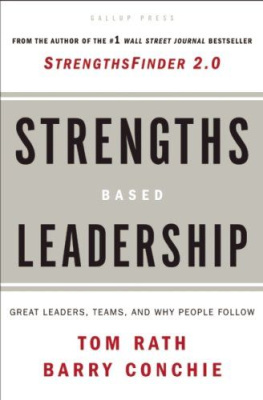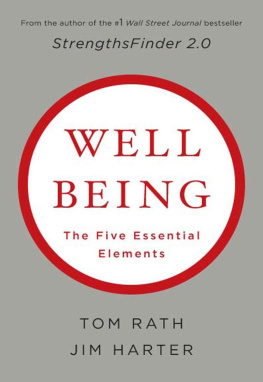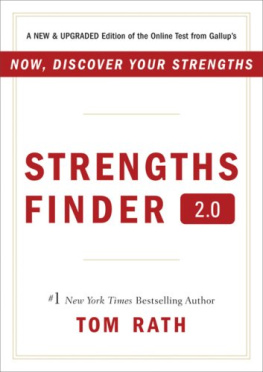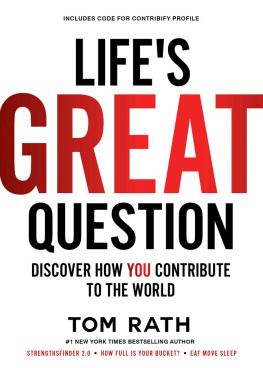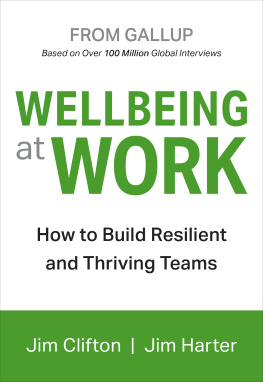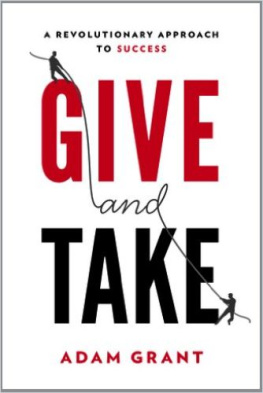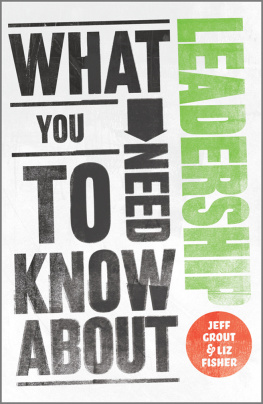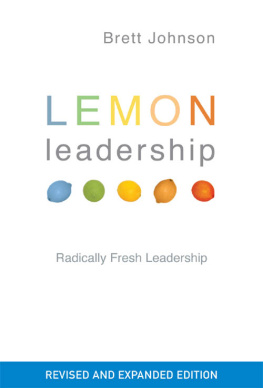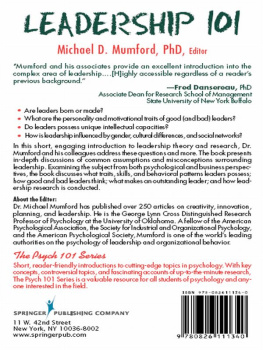This useful leadership book supports its advice, guidelines and recommendations with solid research. Gallup Inc., the well-known polling company, has done far more research on leadership and the social sciences than any author could do alone. Here, Gallup executives Tom Rath already a best-selling author and Barry Conchie extrapolate significant findings on leadership from their companys mountain of research. They explain what superior leadership requires and what a leaders followers seek. Their book comes with unique access codes to leadership strength assessment. In a world of mixed opinion and amorphous authority, getAbstract recommends this empirical approach to understanding leadership by way of reliable data.
Summary
Accentuate Your Strengths
Gallup Inc. knows about leadership. Its staffers have conducted more than 20,000 interviews with key leaders. In 50 years of polling people about their leaders, Gallup studied more than one million workplace teams. Its researchers asked 10,000 followers about the leadership characteristics that matter most to them.
A leader needs to know his strengths as a carpenter knows his tools.
Based on its research, interviews and studies, Gallup lists the three most significant factors in exercising strong leadership:
- The most effective leaders are always investing in strengths Managers must concentrate on their own strengths and on those of their employees. Some 73% of employees say they are more engaged when their firms focus on their personal abilities. Only 9% of staffers feel engaged when companies fail to make this effort.
- The most effective leaders surround themselves with the right people and then maximize their team Well-rounded individuals do not make the best leaders. This may sound like abject heresy, but Gallup research shows that well-rounded individuals turn out to be mediocre leaders. However, the best work teams always are well-rounded.
- The most effective leaders understand their followers needs These leaders work extremely hard to fulfill their employees requirements.
Knowing Your Strengths
As a leader, you must know your strengths and capabilities so you can work to get the most from them, and to expand and enhance them. Leaders who are self-aware can leverage their primary assets. But many leaders lack self-awareness. Often, managers are completely in the dark about their own personalities, or their leadership assets and liabilities. Gallup researchers routinely encounter leaders who dont know where they are strong or weak. For instance, many leaders tell researchers that they are particularly good at developing their employees, but Gallups interviews with those employees sometimes show the exact opposite: The leaders in question more often demoralize, instead of developing, their followers.
While two leaders may have identical expectations, the way they reach their goals is always dependent on the unique arrangement of their strengths.
Prominent leadership researcher Dr. Donald O. Clifton was the father of strengths psychology. Starting in the 1960s, he and his Gallup and academic colleagues initiated more than 20,000 90-minute interviews with business and government leaders, including some former heads of state. Cliftons researchers used performance data to determine how successful the interviewed business leaders were and how they carried out their work. The most startling finding was that these leaders did not share any particular strength. As Clifton explained, What great leaders have in common is that each truly knows his or her strengths...There is no definitive list of characteristics that describes all leaders.
StrengthsFinder
Clifton and his team developed the StrengthsFinder program, a tool you can use to assess your strongest skills. The more you know about yourself and your leadership abilities, the more self-confident you will be. Such confidence leads to greater earnings, more satisfying careers and fewer health problems.
At a company-wide level, nothing creates stability as quickly as transparency.
No single leader can possess every leadership quality, but you can organize executive leadership teams whose members muster an array of complementary skills. Although organizations should customize teams to pursue particular goals, few companies approach team building this way. Instead, many leaders try to make their work teams mirror their personal traits. They seek members who resemble them. When you organize a team, thats the wrong way to go.
You are a leader only if others follow.
Instead, realize that:
- Strong teams are magnets for talent Good employees want to join successful teams.
- Conflict doesnt destroy strong teams because strong teams focus on results Debate is a source of strength, not weakness.
- Strong teams prioritize whats best for the organization and then move forward They adopt a long-range view.
- Members are as committed to their personal lives as they are to their work Team members find time for their families.
- Strong teams embrace diversity Focus on individual members leadership strengths, not their demographic characteristics.
The Four Primary Areas of Leadership Strength
Gallups research indicates that the most successful leadership and work teams unite individuals with complementary strengths and assets.
Ive never met an effective leader who wasnt aware of his talents and working to sharpen them. (Wesley Clark, former NATO Supreme Allied Commander)
The StrengthsFinder system identifies 34 individual leadership themes, which can be sorted into four domains of leadership strength:
- Executing Leaders who are strong in this domain get things done. They can turn airy plans into concrete reality. How they execute depends on their particular leadership abilities. The themes associated with these leaders are: achiever, arranger, belief, consistency, deliberative, discipline, focus, responsibility and restorative.
- Influencing Leaders who are strong influencers can rally backing for an idea or develop political support for a project. Their paths to building influence depend on their particular capabilities. For example, a leader with strong self-assurance does not have to go overboard to sell a concept. This leader radiates inner confidence, so people automatically assume that his or her ideas are good. A leader with strong communication skills will create compelling word pictures about a new idea to impel others to support it. Themes and traits associated with this area are: activator, command, communication, competition, maximizer, self-assurance, significance and woo.

